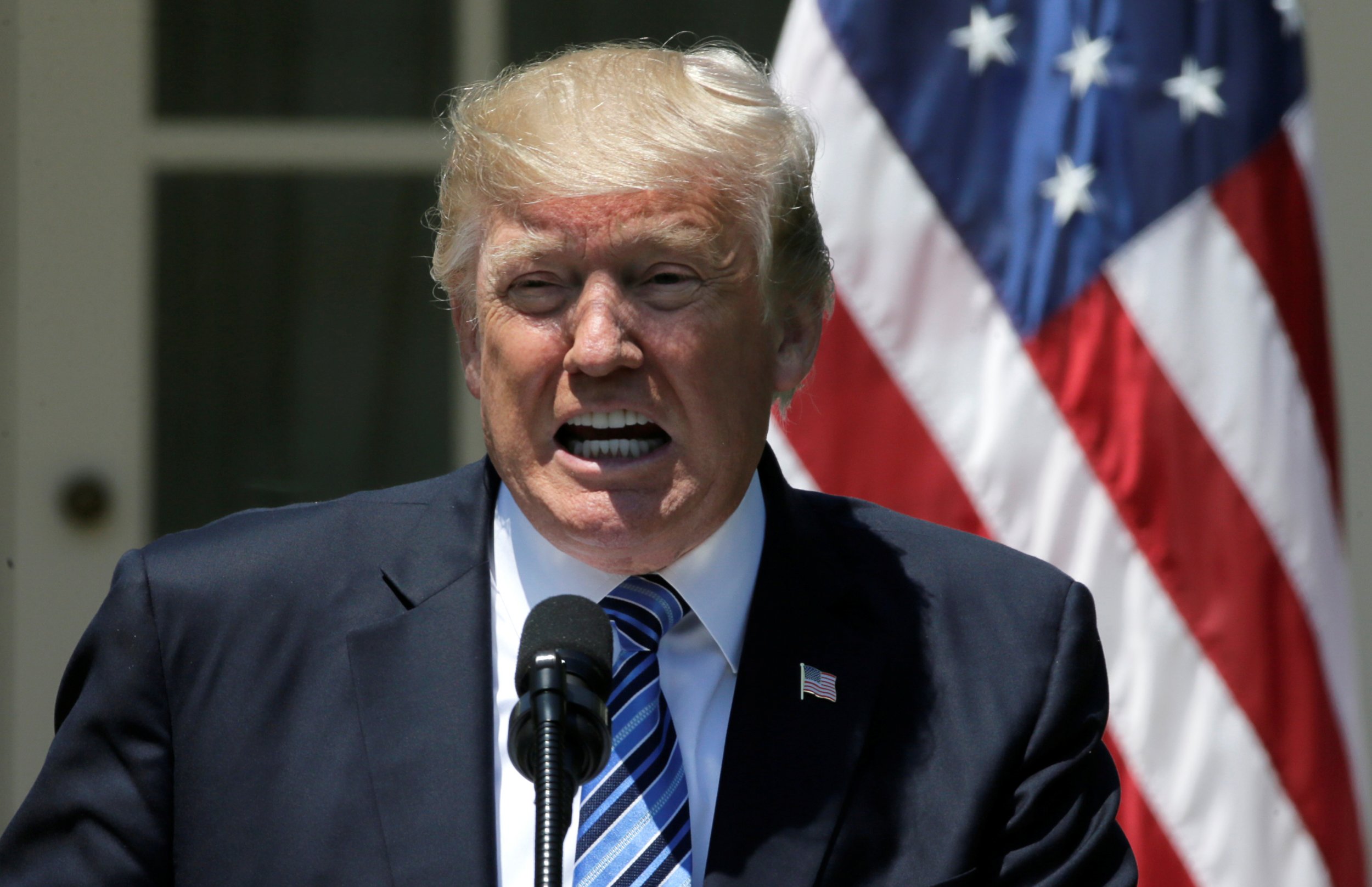
President Donald Trump has promised religious conservatives he will "get rid of and totally destroy the Johnson Amendment," a part of the tax code that bars churches from campaigning for or donating to specific political candidates. In a largely overlooked move, House Republicans have taken the most concrete step yet to make that promise a reality.
The Republicans tucked a provision into a draft spending bill that would make it exponentially more difficult for the Internal Revenue Service to enforce the Johnson Amendment, named after then-Senator Lyndon Johnson, who wrote the amendment that became part of a law signed in 1954. Religious institutions that violate the Johnson Amendment risk losing their tax-exempt status.
The language of the Republicans' provision was approved by the House Appropriations Subcommittee on Financial Services and General Government in a Thursday vote, as was the bill as a whole, a committee aide confirmed. It will next be considered by the full House Appropriations Committee.
Related: What is the Johnson Amendment? Trump's religious-liberty executive order
The new House language, included in Section 116 of the House's Financial Services and General Government appropriations bill for fiscal year 2018, wouldn't repeal the amendment. But it would block funding to the IRS for carrying out investigations of churches suspected of breaking the no-campaigning rules, unless such probes are approved by the IRS commissioner and Congress is notified. After approval, the IRS would be able to launch an inquiry only several months later.
Nicholas Little, vice president and general counsel of the secular advocacy group Center for Inquiry, worries the proposal would essentially make it "impossible for the IRS to investigate a church." He notes the language in the legislation very specifically singles out churches—"It doesn't say church or mosque or synagogue or temples," he says—which pretty clearly indicates the targets Republicans have in mind.
Trump made a pledge to the religious right during the 2016 election that he would gut the Johnson Amendment if elected. He and other critics of the provision argue it violates church and religious leaders' right to free speech. Opponents of the move point out that, like other nonprofits, churches are allowed to advocate for policies, lobby government and host political figures at religious functions as long as they don't endorse or show bias for a given candidate.
The biggest piece of the law that raises hackles, however, is the ban on political donations. To supporters of the provision, like Little, it's an important way to keep "unregulated dark money flowing directly to campaigns."
In May, the president signed an executive order that directed the IRS to scrutinize enforcement of the provision. "Today my administration is leading by example as we take historic steps to protect religious liberty in the United States of America," Trump said in a Rose Garden ceremony. "We will not allow people of faith to be targeted, bullied or silenced anymore."
But like many of the president's orders, it had limited enforcement power. By putting IRS funds at stake, the House GOP proposal would give the White House effort teeth—and make it part of permanent law.
Critics are worried that by tying the provision onto the sprawling, complex spending legislation Congress will have to pass to keep the government running, Republicans will be able to avoid the scrutiny that would come from an open debate on the virtues and downsides of the Johnson Amendment, on its own. Given all the fights Democrats are waging against Trump's agenda, the question is: "Is this a hill that House and Senate Democrats are willing to make a stand on?" Little asks.
Uncommon Knowledge
Newsweek is committed to challenging conventional wisdom and finding connections in the search for common ground.
Newsweek is committed to challenging conventional wisdom and finding connections in the search for common ground.
About the writer
Emily spearheads Newsweek's day-to-day coverage of politics from Washington, D.C. She has been covering U.S. politics, Congress and foreign affairs ... Read more
To read how Newsweek uses AI as a newsroom tool, Click here.








